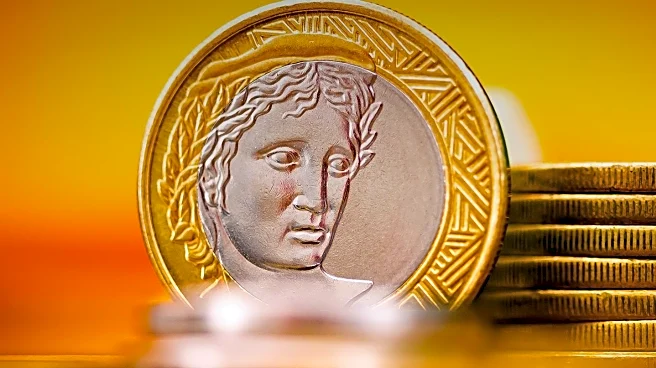What's Happening?
Pope Leo XIV has returned 62 artifacts from the Vatican's ethnographic collection to Indigenous peoples from Canada, as part of the Catholic Church's efforts to address its colonial past. The artifacts, including an iconic Inuit kayak, were given to the Canadian
Conference of Catholic Bishops, which plans to return them to Indigenous communities. This gesture is described as a 'gift' and a 'concrete sign of dialogue, respect, and fraternity.' The return of these items follows negotiations that accelerated after Pope Francis met with Indigenous leaders in 2022, who requested the return of cultural goods taken during colonial periods.
Why It's Important?
The return of artifacts to Indigenous peoples is a significant step in the Catholic Church's reckoning with its colonial history and its role in suppressing Indigenous culture. This action supports ongoing efforts toward truth, justice, and reconciliation, acknowledging the cultural heritage of Indigenous communities. The gesture may influence broader discussions on the restitution of cultural goods and the church's relationship with Indigenous peoples. It highlights the importance of addressing historical injustices and fostering dialogue and respect.
What's Next?
The artifacts are expected to arrive in Canada on December 6, where they will be reunited with their originating communities. The Canadian Museum of History will facilitate the return and conduct research to establish the provenance of any items of uncertain origin. The return of these artifacts may prompt further discussions on the restitution of cultural goods and the church's role in colonial-era abuses. It may also influence broader reconciliation efforts between the Catholic Church and Indigenous communities.
Beyond the Headlines
The return of artifacts reflects broader efforts to address historical injustices and foster reconciliation. It highlights the complex interplay of cultural heritage, colonial history, and the church's role in shaping Indigenous communities. The gesture underscores the importance of dialogue and respect in addressing past abuses and fostering a more inclusive future.

















